I know this is not our typical post, but it is the season for thesis submissions in our part of the world, in fact I have an almost permanent pile of papers on my desk right now. This is the time of year that a number of students descend on me to “take a look” at their thesis and check it for any resounding errors before they hand it in. I have a learnt a few things, while marching through papers and I am writing this post to help future students to find ways to edit their own work. I have edited engineering thesis and theology papers, and a whole lot of topics in-between. The mistakes students make and the errors that examiners are looking for are pretty universal and are not actually topic dependent at all.
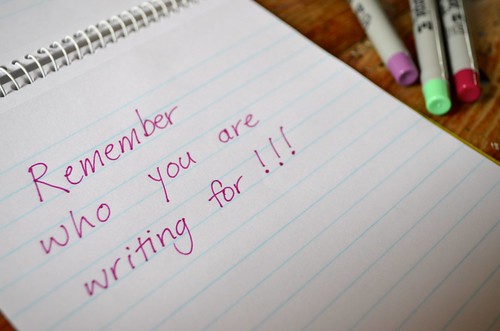
Writing and editing a paper are two completely different processes and you need to make time for both of them. When you are writing and the words are flowing and the coffee is being placed next to you by a kindly person… then write on, write on… let the words flow. If you do have editing ideas or things you want to check have a piece of blank paper next to you specifically for that. Fill in a numbered list as you go. If you have questions that you want to look up, or ideas that you really want to come back too and think about – then jot them onto your paper and keep on writing.
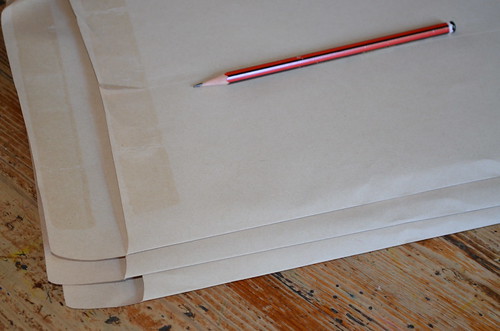
Editing is a completely different thing to writing and it is rare to find a student that takes editing time into account, but it is essential. Editing before you hand in a paper can easily take up to 20% of your time. If you have a week to write an essay then one day at least has to be spent editing. An academic year, about ten months… then you are going to be editing for a month or two. It is not a quick and easy thing to do, it is a time-consuming and pedantic process and only the student really knows their work well enough to do this. And therein lies the problem, very often the student has been looking at the work for so long that they can no longer see errors in it at all… Writing needs a rest before you can edit it… I know this is nearly impossible as deadlines loom… but fresh and rested eyes are a much more able to find faults.
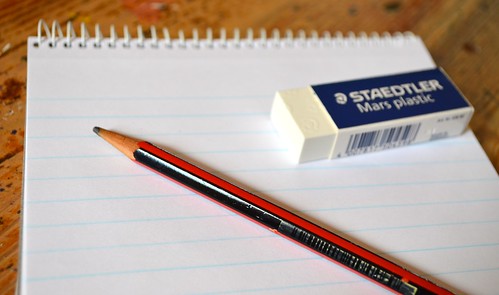
The most important thing to keep in mind as you work through the last edits of your thesis… is keep in mind who will be marking the thesis. Always remember who you are writing for… your examiner is a person just like you, they have a job, a family and a life. This is brutally honest, but most examiners have not been sitting at a desk for the last however many years waiting for you to finish your thesis. Marking a paper is usually over and above an examiner’s regular job and they are tired after a day at the office – the last thing they want is a paper that is difficult to read. Make your thesis as easy as possible to read.

Your examiner is going to be looking for consistency and thoroughness… and the easiest places to look for consistency is in the contents page and the references. For thoroughness they are going to be reading at your content, now they may not read every word but you can be sure they will read your introduction and your conclusion very carefully and they will go through your literature review in detail, to ensure that you have read all that you need to read to get a good grounding in your study topic.
Se7en + 1 Common Editing Mistakes in a Thesis…
- General Presentation: The first thing an examiner will do is flip through the thesis to see if it looks easy to read. So your job is to make it look easy to read… no awkward gaps, no tables half on one page and half on another; no section heading right at the bottom of a page. And make it as short as you can, everyone knows that you are clever enough to be doing this work, that’s why you are there, now is not the time to prove that you know everything there is to know about a topic, now is the time to present what is useful. Remember a tired examiner at the end of the working day – they don’t want to read 1000 pages of anything, if you have a word limit then stick to it. When I talk about general presentation I am not talking about the obvious, like coffee stains and cookie crumbs… but about the time your printer had a glitch and printed so far, you put in fresh paper and it printed to the end. It could happen and you need to check that every page is there… Boring I know, but I would only be saying it because I have received papers with pages missing and a red faced student has told me it couldn’t possibly have happened. It does, check it.
- The Front Page: There is going to be an error on your front page – somewhere, somehow, somewhat… and it is the examiner’s job to find it. It is possibly the hardest error for you to spot because you have seen that page so many times that it feels like the back of your hand. But it is there… you have missed a full stop, you have left off a capital. So how to spot it… read it backwards, look at it in a mirror, do something different to your usual reading. Check your front page – because there is always always always a mistake on the front page. Remember who you are writing for, you can save your examiner hours of eye-strain, by simply removing the error that is sure to be on your front page.
- Contents Page: This is one place that an examiner can look for consistency, and so many students tell me there are no errors on the contents page and breeze past it. Remember consistency, learn how to capitalise a title and be consistent throughout your thesis. Do not capitalise the words in some sections and not in others. For example: “How to write a quick blogpost” is just not the same as “How to Write a Quick Blogpost.” Also use punctuation consistently, if you put a full stop at the end of your section titles, then you have to put a full stop at the end of every section title. Inconsistency looks odd on your content page and is not pleasing to the eye and your examiner will spot it.
- The Bibliography or Reference List: The next place to look for consistency is your reference list. No doubt you will have been told a specific style for presenting your references, your examiner expects you to use that style. Again when capitalising your titles – either always capitalise important words in a title or never capitalise. Whatever you do always be consistent… from one entry to the next, follow the same pattern. If you put commas between points then you always have to put commas… just look at your pages carefully and read these pages from the bottom up to find glaring errors. Believe me on these pages there will be plenty of “and and’s” and “of of’s”… it is only natural, we tend to add in references at the end of a work session when we are not fresh and alert. Another quick tip, if you have more than one reference by the same author, then list them according to the date they were published.
- Read Your Work Through: This is the most surprising thing to non-students, most students who have given me a paper to read have never read their entire paper as a whole, from the beginning through to the end. GASP!!! It isn’t that shocking really, it is the nature of the work, a thesis is written in bits, over a period of months. They started with an outline – usually five chapters: An introduction and conclusion, some sort of literature review, what they considered and how they went about it and finally the results. They pretty much do the work in that order to and the take all the bits and put them together and hand it in. However, what seemed vital and relevant when you wrote your introduction six months or even a year before may no longer even be relevant. Also it is very easy when you are submitting sections to your lecturer that you have copied chunks of other sections, a paragraph from the introduction, a section from your review… popped it into the chapter you are handing in for review and thinking you will take them out and then never thinking about it again ever. It happens you need to check for repetition. Reading through your own work is probably the hardest part of a thesis, it is your work and your writing and feels so familiar that what you see on the page and what is actually on the page can be vastly different. The way to overcome that is to settle yourself down with a pencil and a highlighter and treat every page as it’s own unique page and read it slowly and carefully out-loud. Set yourself little tasks, I highlight references so that I can check them… but you can underline verbs, you can circle the first word of every sentence… anything different to just reading, anything to keep your brain engaged with that page, anything to stop your mind wandering off. Whatever you need to do to stay alert and look for errors. You are looking for errors there will be tons of them.
- References: I know I have mentioned references before and if I say that you have to check your references you won’t believe me… because everyone thinks that their referencing are perfect. Remember who you are writing for, and that your examiner is looking for consistency… as I read through a paper… I separate the reference pages out and place them next to me, I start at the top of a page and I wander down with a highlighter, just marking the references and any names that look like they should be references. Then I check that each reference is in the reference list at the end of the thesis. If they are on the list then I tick them on the list and I tick them on the page that I found them in the paper. If they aren’t on the list then I put a star above them circle round them… write error on page# on the scrap paper next to me. It is vital that the references you have referenced actually appear in your bibliography. Also, as you read you begin to notice some names appear again and again and very often, familiarity breeds contempt, and because a student has mentioned something dozens of times then they stop referencing that author, you need to check for that. Finally, when you are finished reading the paper you need to check the references list for entries that don’t have a tick next to them. Those are works that you may have wanted to reference, or you referenced in a section of work that you later discarded. Whatever the case you cannot leave these references unattended… either find away to include them into your thesis or remove them from the reference list.
- Footnotes: Now footnotes are a little note to the reader, from the author… they need to be referenced just as the rest of the thesis is and just because they are a note to inform the reader of something doesn’t mean that you can talk “conversationally” to the reader. If you want to refer the reader to another work, then mention the other work. Do not direct the reader to read more works, to find more details elsewhere, to seek more insight… remember who you are writing for… your examiner wants to be able to read through your paper, without feeling that they have to refer to someone else’s work for the details… so instead of “refer to this author for an in-depth study,” your footnote could read: “this author performed an in-depth study.” That way the examiner knows what you know, but doesn’t feel compelled to go and do a whole lot of extra research. Also, footnotes are often our thoughts as we write, and they have to be checked to see that our ideas are still the same… if you rewrite your introduction is that footnote in chapter three still relevant… you have to go through your footnotes and verify each of them.
- The Font: Not the font of knowledge, just the font… it has to be the same thing throughout and I know that this would never ever happen to any student that handed me a paper, I’m kidding – this happens more often than you could ever imagine. But could you please check that your font is consistent throughout… the same font and the same font size through out. It is not easy to check and you can not just highlight everything and set the front, because you will have italics in places, you will have bold text… you need to check this and you need to correct this. Again remember who you are writing for and what they are looking for. They are always looking for consistency and they are always looking for a paper that is “easy on the eyes” to read.
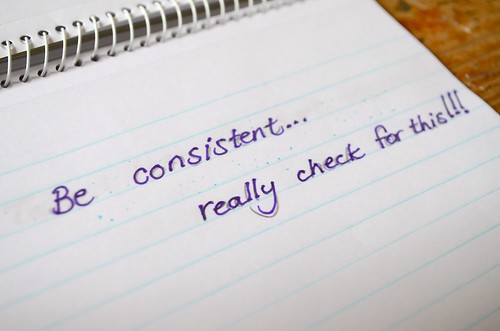
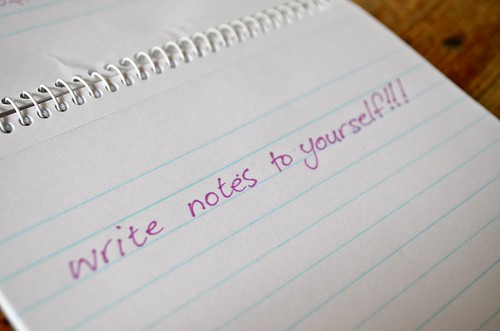
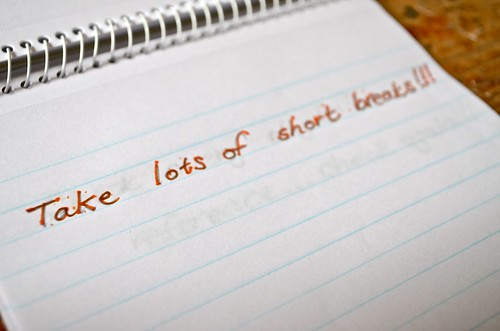
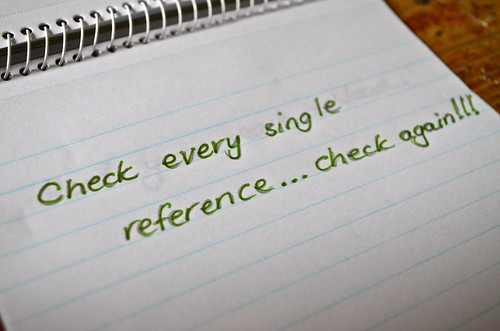
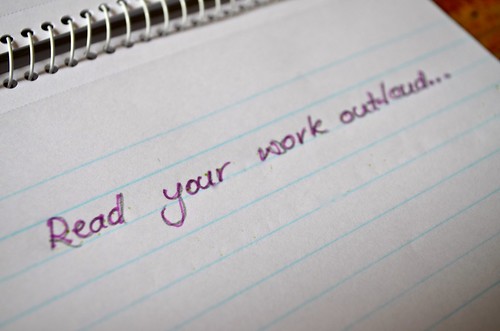
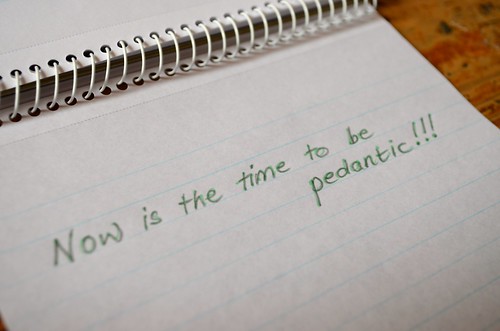
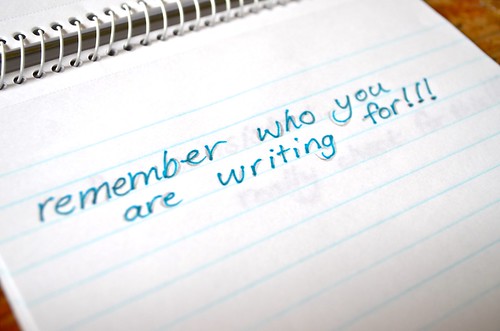
And the se7en+ 1th…
Now every student is going to say – this would never happen to me, I would never have a mixed font, I would never be missing pages, and my word processor lists all my references, so they must be there. I can honestly say that I have never had a paper without these sorts of errors, I couldn’t make this up, all these suggestions are from real life. Keep the goal in mind, at this stage it is so easy to give up and hand in what you have. Keep going, when you are so close to the finish. Really in a nutshell… remember who you are writing for, don’t let your examiner become bogged down with the nitty gritty of really avoidable errors. Correcting mistakes like the ones that I have listed can make it much easier for your examiner to actually read your work and discover what you have written.
And I am sure that if you are reading this post instead of editing your thesis you will find it packed with errors… even in the first paragraph. Point them out, I won’t mind at all… that’s the difference between blogging and submitting a thesis, the one doesn’t have to be perfect.


Very helpful! Will pass it on to the kids!
Huge fan of your blog! Just a little confused on what the kiddos are writing a thesis for? Must be something different than we do here in the states. Can you explain, for my own curiosity. I’m thinking my kids would crumble under the pressure! LOL. It also makes me wonder if I shouldn’t assign one for practice.
By the way, your kids have smiles that light up my morning coffee time!
Great Aunty Muffin, I am hoping this post will help students, before their papers arrive on my desk for perusal. Have a great weekend.
Hay Tracy, So glad you enjoy our blog, always good to meet a fan. Now that is a funny comment!!! No my children do not write a thesis for school, and blindly ignore any research projects that I set!!! But we do have a lot of student friends and I help them get ready for hand-in. Also my oldest son has done a couple of college courses, he is required to hand in plenty of papers and I have made sure he understands the editing process before he hands them in… So no, I wouldn’t bother to assign one to your crew at all… that doesn’t mean they won’t go off and explore topics and things that fascinate them… but hold off on the heavy assignments – there are plenty of those later on in life!!! Have a fun weekend!!!
I loved this post!@!!
There must be a big market for people like you because most wouldn’t have the patience to carefully edit. D is also good at this!
I am so glad you like it Marcia, I actually really enjoyed writing it… especially as now I can send it to prospective students and say, “When you have read this then you can get back to me.” It is so hard writing a thesis, and difficult to say when you have done – and even harder to find mistakes in your own work!!! Thanks so much for stopping by and leaving a comment – I so appreciate it!!!